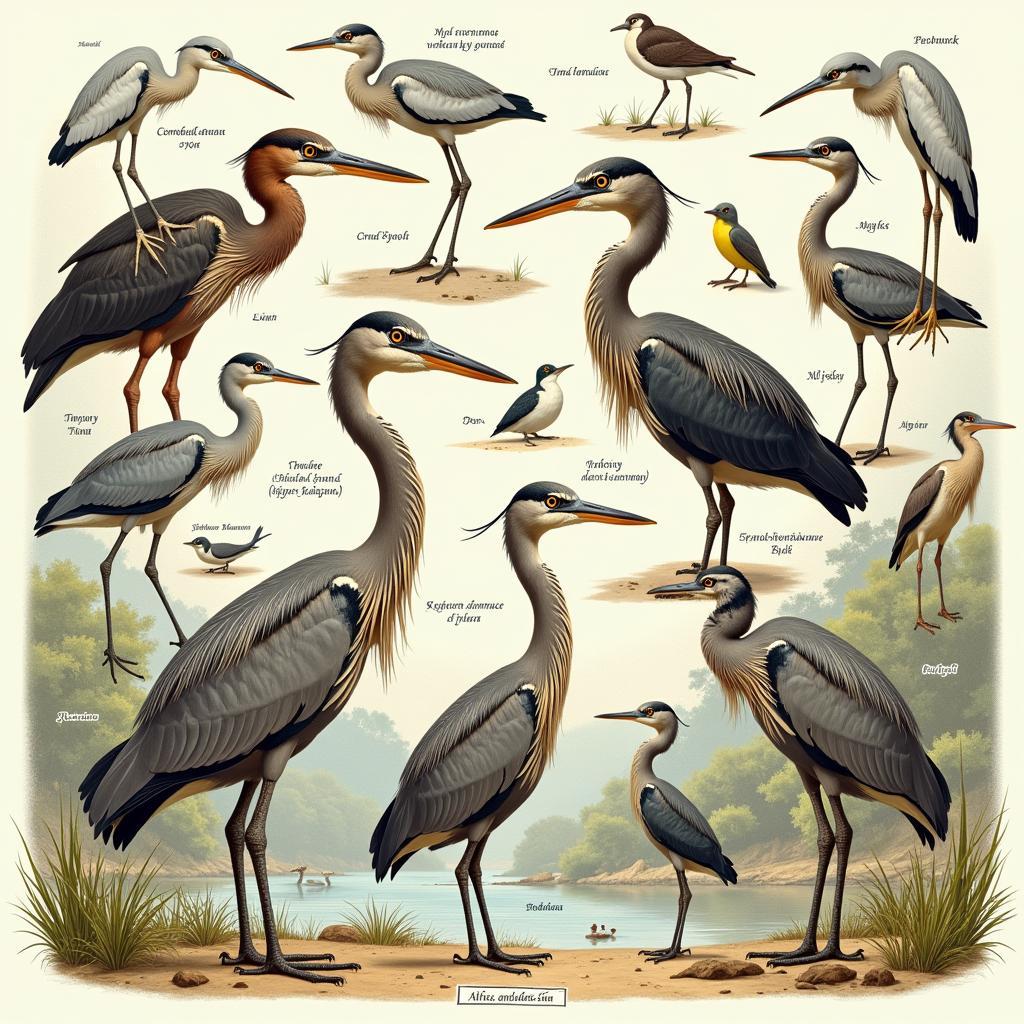A Comprehensive Guide to African Countries and Their Capitals: A Wikipedia Overview
Africa, the second-largest continent on Earth, boasts a rich tapestry of cultures, landscapes, and history. It is home to 54 independent countries, each with its unique identity and fascinating capital city. This article delves into the heart of African geography, providing a detailed overview of these countries and their capitals, drawing from the vast repository of information available on Wikipedia.
Navigating the African Landscape: A Country-by-Country Exploration
Africa’s diverse landscape, from the rolling savannas of the east to the snow-capped peaks of the Atlas Mountains in the north, is reflected in the unique character of its capital cities. Let’s embark on a journey to explore each country and its designated seat of government:
1. North Africa:
- Algeria: Algiers, a vibrant coastal city with a rich history, is Algeria’s capital.
- Egypt: Cairo, a bustling metropolis, is Egypt’s capital and one of the oldest continuously inhabited cities in the world.
- Libya: Tripoli, located on the Mediterranean coast, is Libya’s capital, known for its bustling souks and historical landmarks.
- Morocco: Rabat, the country’s political capital, is a modern city with a beautiful waterfront and a historic medina.
- Sudan: Khartoum, located at the confluence of the Blue Nile and White Nile rivers, is Sudan’s capital.
- Tunisia: Tunis, a coastal city with a blend of traditional and modern architecture, is Tunisia’s capital.
2. West Africa:
- Benin: Porto-Novo, a bustling port city with a vibrant market scene, is Benin’s capital.
- Burkina Faso: Ouagadougou, the country’s largest city, is Burkina Faso’s capital.
- Cabo Verde: Praia, a charming city with a Portuguese colonial influence, is Cabo Verde’s capital.
- Côte d’Ivoire: Yamoussoukro, built by former President Félix Houphouët-Boigny, is Côte d’Ivoire’s capital, though Abidjan remains the country’s economic hub.
- Gambia: Banjul, a small and historic city on the Gambia River, is Gambia’s capital.
- Ghana: Accra, a dynamic city with a thriving economy, is Ghana’s capital.
- Guinea: Conakry, a coastal city known for its bustling harbor, is Guinea’s capital.
- Guinea-Bissau: Bissau, located on the Geba River, is Guinea-Bissau’s capital, a city steeped in colonial history.
- Liberia: Monrovia, a bustling port city, is Liberia’s capital, named after U.S. President James Monroe.
- Mali: Bamako, a vibrant city on the Niger River, is Mali’s capital, a center for trade and culture.
- Mauritania: Nouakchott, a desert city located on the Atlantic coast, is Mauritania’s capital.
- Niger: Niamey, located on the Niger River, is Niger’s capital, known for its traditional markets and colorful architecture.
- Nigeria: Abuja, a planned city designed in the late 20th century, is Nigeria’s capital.
- Senegal: Dakar, a vibrant city with a strong cultural identity, is Senegal’s capital.
- Sierra Leone: Freetown, a historic city located on the Sierra Leone Peninsula, is Sierra Leone’s capital.
- Togo: Lomé, a coastal city with a vibrant market scene, is Togo’s capital.
3. Central Africa:
- Cameroon: Yaoundé, a hilly city with a colonial past, is Cameroon’s capital.
- Central African Republic: Bangui, a city located on the Ubangi River, is the Central African Republic’s capital.
- Chad: N’Djamena, a bustling city on the Chari River, is Chad’s capital.
- Democratic Republic of the Congo: Kinshasa, a vibrant city on the Congo River, is the Democratic Republic of the Congo’s capital.
- Equatorial Guinea: Malabo, a city located on Bioko Island, is Equatorial Guinea’s capital.
- Gabon: Libreville, a coastal city with a diverse population, is Gabon’s capital.
- Republic of the Congo: Brazzaville, a city on the Congo River, is the Republic of the Congo’s capital.
- São Tomé and Príncipe: São Tomé, a historic city on the island of São Tomé, is São Tomé and Príncipe’s capital.
4. East Africa:
- Burundi: Bujumbura, a city on Lake Tanganyika, is Burundi’s capital.
- Comoros: Moroni, a city on the island of Grande Comore, is Comoros’s capital.
- Djibouti: Djibouti City, located on the Gulf of Tadjoura, is Djibouti’s capital, a strategic port city.
- Eritrea: Asmara, a city with a unique blend of Italian colonial architecture and modern development, is Eritrea’s capital.
- Ethiopia: Addis Ababa, a bustling city known as the “political capital of Africa,” is Ethiopia’s capital.
- Kenya: Nairobi, a dynamic city with a rich cultural heritage, is Kenya’s capital.
- Madagascar: Antananarivo, a city with a distinctive hilltop location, is Madagascar’s capital.
- Malawi: Lilongwe, a modern city with a vibrant market scene, is Malawi’s capital.
- Mauritius: Port Louis, a historic city with a unique blend of cultures, is Mauritius’s capital.
- Mozambique: Maputo, a coastal city with a Portuguese colonial influence, is Mozambique’s capital.
- Rwanda: Kigali, a city with a modern skyline, is Rwanda’s capital.
- Seychelles: Victoria, a small but bustling city on the island of Mahé, is Seychelles’s capital.
- Somalia: Mogadishu, a coastal city with a rich history, is Somalia’s capital.
- South Sudan: Juba, a city on the White Nile River, is South Sudan’s capital.
- Tanzania: Dodoma, a city located in the heart of Tanzania, is Tanzania’s capital, though Dar es Salaam remains the country’s largest city.
- Uganda: Kampala, a city with a vibrant cultural scene, is Uganda’s capital.
- Zambia: Lusaka, a city with a rapidly growing economy, is Zambia’s capital.
- Zimbabwe: Harare, a city with a British colonial past, is Zimbabwe’s capital.
5. Southern Africa:
- Angola: Luanda, a bustling port city with a Portuguese colonial influence, is Angola’s capital.
- Botswana: Gaborone, a modern city located in the south-east of the country, is Botswana’s capital.
- Eswatini: Mbabane, a city located in the central highlands, is Eswatini’s capital.
- Lesotho: Maseru, a city located in the valley of the Caledon River, is Lesotho’s capital.
- Namibia: Windhoek, a city with a German colonial past, is Namibia’s capital.
- South Africa: Pretoria, a city with a rich history, is South Africa’s administrative capital, while Cape Town serves as the legislative capital and Bloemfontein is the judicial capital.
Africa’s Capitals: A Reflection of Diverse Cultures and Histories
Africa’s capital cities are a testament to the continent’s rich cultural tapestry. From the bustling metropolises of Cairo and Lagos to the charming coastal cities of Dakar and Freetown, each capital city tells a unique story about the country it represents.
Dr. Amani Njoroge, an anthropologist specializing in African urbanism: “The capitals of Africa are not just administrative centers, but also cultural hubs, reflecting the diverse histories, traditions, and aspirations of their people. They are places where the past and the present converge, where modernity meets tradition.”
These cities are constantly evolving, adapting to the challenges and opportunities of the 21st century. They are hubs of trade, commerce, education, and innovation, and continue to play a pivotal role in shaping the future of Africa.
Frequently Asked Questions
1. What is the largest city in Africa?
The largest city in Africa is Cairo, Egypt, with a population of over 20 million.
2. Which African country has the most capital cities?
South Africa is the only country in Africa with three capital cities, each serving a specific purpose.
3. Are there any African countries without a capital city?
No, all 54 independent African countries have a designated capital city.
4. How do I find more information about specific African capitals?
Wikipedia is an excellent source for detailed information about the history, culture, and geography of African countries and their capitals. You can access a vast database of information by searching for the specific capital city on Wikipedia.
5. Why are there so many capital cities in Africa?
The decision to establish capital cities is influenced by a variety of factors, including historical events, political considerations, economic opportunities, and geographical features.
6. What are some of the key trends shaping African capitals today?
Key trends include rapid urbanization, economic growth, technological advancements, and the increasing focus on sustainable development.
Embark on Your Own African Exploration
This article has only scratched the surface of the fascinating world of African countries and their capitals. We encourage you to continue your exploration by delving deeper into Wikipedia’s vast repository of knowledge. Discover the vibrant cultures, historical landmarks, and diverse landscapes that make Africa a truly unique and captivating continent.


